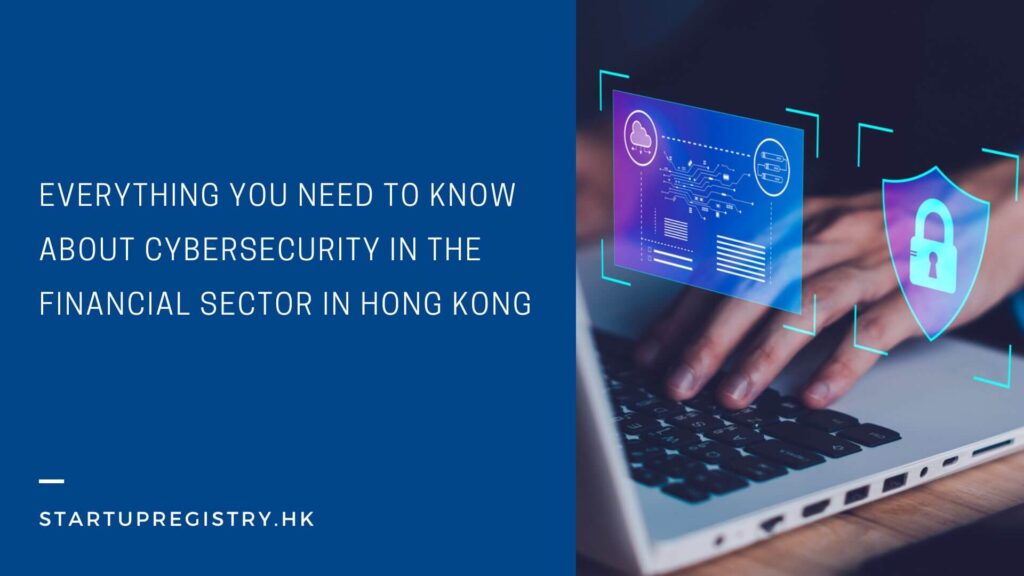Hong Kong is indeed one of the best places in the world when it comes to finance. Investors and entrepreneurs from all corners of the world are interested in funding Hong Kong’s financial sector. The fact that Hong Kong has a strong banking system and strict control of the market rules makes the city the best choice to invest your money. The Hong Kong Stock Exchange (HKEX) is one of the world’s biggest stock exchanges, thus making investment very simple and secure. Also, the regulatory authorities in Hong Kong, such as the Hong Kong Monetary Authority (HKMA) and the Securities and Futures Commission (SFC), provide the necessary support in the city. This is why a strong framework of market regulation and the presence of regional authorities such as HKMA and SFC make Hong Kong the obvious candidate for investment in the financial sector.
Along with being highly protected, Hong Kong also is a good place to invest your money. Still, it is better to take proper care in order to secure your investment. One of the ways to do this is by bringing cybersecurity into the financial field. Cybersecurity in the financial industry acts as a safeguard which is at risk of being subject to phishing attacks and data leaks. FinTech is constantly developing, and with it, a number of new online threats are growing. So, it is a good decision on your part to incorporate cybersecurity in the financial sector. If you would like to work in Hong Kong, you should definitely read this article. The purpose of the article is to provide information on the risks in the financial industry and cybersecurity laws in Hong Kong.

Specific Risks in the Financial Sector
With the excessive use of the internet and technological advancement, cybersecurity is an emerging issue. Because of technological advancements, the financial sector can face various types of risks, which are listed below:
1. Types of Data Breaches
One of the most common risks in the financial sector and companies is data breaches. Data breach means unauthorized access to any of the confidential data. In the financial sector, there are different kinds of data breaches. Unauthorized personnel can fetch customer data, financial transactions, inside reports, personal information, and other types of data and can use them against the company or the whole system. Data breaches can be extremely harmful to operations and can damage the reputation of a company. Another major impact of data breach is financial loss. Companies facing data breaches might lose a significant sum of money if they don’t tackle the data breach accurately. Further, you can prevent data breaches by using strong passwords, multi-factor authentication, keeping software up to date, and training your employees.
2. Phishing
The term “phishing” refers to the act of tricking individuals and groups or employees of organizations into providing their financial information for fraudulent purposes. Phishing assaults generally look for private data like credit card numbers, usernames, passwords and so forth. In order to prevent such attacks, you should impart knowledge and skills to your employees to identify phishing attacks, not click on links and attachments from unsolicited sources, run up-to-date systems and software and check the sender through an official channel.
Phishing has changed dramatically in the past ten years and has taken various forms. The most common phishing types include email phishing, whaling and angler phishing.
Types of phishing
- Email Phishing– Email phishing is a method of sending emails to the targets pretending to be coming from a legitimate source. These emails are usually urgent and without giving you an option they deceive you to click on a malevolent link or download an attachment.
- Whaling– Whaling is an even bigger form of phishing attack that targets high-profile individuals such as CEOs, directors and board members. A thorough research is conducted about the personal, professional and social connections of the target. These attacks are planned and executed very carefully.
- Angler Phishing– Angler phishing is a form of phishing that takes place on social media platforms. Attackers create a fake account of the person or even hack the official account and connect with the audience as the person. They might send fake offers and inappropriate messages to them damaging the reputation of the individual.
There are some common traits of these phishing attacks that can help you detect them easily. As soon as you receive a message or email requesting your personal information on an urgent notice, you must look at the email very carefully. You must check the sender’s email address and validate it before doing anything else. All you have to do next is check the spelling and grammatical errors in the email. If a message or email requests company trade secrets or is related to financial/legal concerns, it is best to confirm that the message was indeed sent by the sender.
3. Ransomware
Ransomware is a type of malware that infects the system and encrypts the data. Malware is basically malicious software that can damage and corrupt a device. In recent years, there has been a notable rise in ransomware and malware attacks. These attacks are disseminated through a Trojan that is concealed within a file, link or attachment that appears to be legitimate. With just a single click on the link the system will immediately surrender to the system of the attacker and lock down data access. Ransomware can greatly affect the flow of money inside a company. These attacks can disrupt resource allocation, affect transaction processes, lead to financial losses and impact the overall financial operation of the institution. You can prevent ransomware by backing up your data, keeping all systems and software updated, and installing antivirus and firewalls.
4. Insider Threats
One of the biggest risks in the financial sector is insider threats. Insiders are employees, contractors, or any individual who has access to the business’s sensitive information. Insiders can misuse their access to confidential data by stealing it and selling it to competitors. Manipulation of records is another big threat posed by these insiders. Temporary employees or contractors might follow different standards of security protocols, weakening the security system of the financial sector. Therefore, it becomes exceedingly essential to mitigate these insider threats beforehand. Access control, implementation of monitoring tools, employee training, background checks and integration of whistleblower policies are the best measures to mitigate the risks associated with insider threats.
5. Cloud Security
The last risk faced by the financial sector in terms of cybersecurity is securing cloud-based financial services. Numerous challenges are associated with securing cloud-based financial services, such as data privacy, compliance, access control, usage of the shared responsibility model, data breaches, lack of visibility and a few others. These challenges can be easily tackled by implementing cloud security measures. The best practices for cloud security are data encryption, access management, regular audits and assessments, compliance monitoring, security awareness training and backup and disaster recovery. If you can adopt these practices effectively, you can improve your cloud security and reduce the possibilities of cyber threats.
Regulatory Requirements in Hong Kong
1. Hong Kong Monetary Authority (HKMA) and Cyber Security
The Hong Kong Monetary Authority (HKMA), together with other key authorities, has provided financial institutions with guidelines. The HKMA is the central banking institution in Hong Kong that maintains the financial stability of the financial jurisdiction. The rule also offers a number of recommendations for activities financiers can use to oversee the financial sector, protect the consumer, and maintain compliance with regulations. It has issued the Cybersecurity Fortification Initiative (CFI) for safeguarding the banking sector from cyber hazards. Key financial institutions in Hong Kong are subject to board oversight, continuous monitoring, third-party risk management and regular testing obligations.
2. Securities and Future Commission Regulations and Personal Data Privacy Ordinance
Other applicable regulations promulgated by the financial institution include Securities and Futures Commission (SFC) regulations and the Personal Data Privacy Ordinance (PDPO). The SFC is an independent statutory body that regulates the securities and future markets in Hong Kong while overseeing the financial sector of Hong Kong. The PDPO regulates the collection and use of personal data in Hong Kong. The financial institutions have to satisfy PDPO data protection principles and have to report a data breach to the Privacy Commissioner.
3. Adherence to International Cyber Security Standards
Finally, financial organizations have to follow international cybersecurity regulations. Financial institutions need to comply with the top two international regulations, Basel III and ISO 27001. Basel III is a regulatory framework concerned with risk management. As per Basel III regulations, banks must hold enough capital to cover the cost of potential losses resulting from cyber threats or operational events. ISO 27001 is an international standard for Information Security Management Systems (ISMS). It contains a rich set of controls for effective management of information security risks.
Why establish a business in Hong Kong?
If you are asking yourself why you started a business in Hong Kong, this is why: Hong Kong is one of the most important technology cities and financial centers and a business giant in the world. Many corporations and new business personalities want to establish their businesses in Hong Kong. Its strategic location, robust legal structure, strong banking system, good infrastructure, business-friendly environment, and relatively easy tax system are some of the reasons why Hong Kong is suitable for business.
If you want to begin a financial business in Hong Kong, then Startupr will be here to assist you. Startupr is a well-known and recognized service provider that can assist you in starting your business in Hong Kong. It provides an extensive list of services that might help you in setting up and managing your business. Some of these services include company registration, registered business address, mail forwarding, accounting and bookkeeping, filing of annual returns, and lots more.


